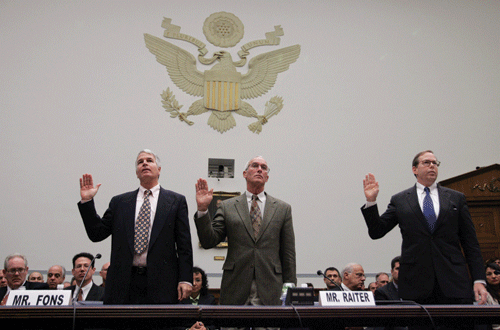The Association of Insurance Companies in Lebanon (ACAL) is the leading voice representing insurance providers in the country. Executive sat down with ACAL president Assaad Merza to learn about the challenges facing the industry.
E What are the plans of ACAL, especially after we witnessed the passing away of former ACAL President Abraham Matossian in May?
What we are doing is always a continuity of what Mr Matossian was doing. He was a great man and it is very important to us to follow what he did. [However], every person has a different idea of how to develop the association. What we are doing now started with the statistics on the website, which is a very nice thing. We also have very good relations now with the Ministry of Economy and Trade and are working on the new insurance law with the ministry.
E Are there any specific changes that you are seeking to implement in relations with the insurance commissioner at the Ministry of Economy?
There has been some trouble in the past [between us and the commissioner]. Now we are open for discussions, which is very important.
E What other plans does ACAL have?
We are going to convene conferences within the association; [international reinsurance company] Munich Re is coming to do a conference and perhaps Swiss Re and Partner Re will be coming. We are going to do conferences with the big insurance companies, which is very important. We are activating ACAL more and more.
E Global financial markets are in upheaval. In light of this uncertainty, what is the outlook for the Lebanese insurance sector?
[The uncertainty] is also on a regional level. We are concerned with what is happening in the Gulf and we are concerned with what is happening in the countries next to us — Syria, Egypt and Jordan. The situation in all these countries is bad for us.
E How does the situation in neighboring countries affect Lebanon’s insurers?
Many Syrian people used to come [to Lebanon] to do shopping and many things but today we feel that even the car market is reduced. The statistics show that [sales of] expensive cars are much lower and the import of goods is lower. On the transport side, this reduced our production [of insurance premiums] and on the motor side, our production was reduced.
E How are the developments in other insurance lines?
What is up a little bit is the medical but this increase is because we increased our premiums a little since hospitals have increased their rates. On the life side, there is a bit of an increase but it is still not a healthy business. I hope in the long run that the economic situation will be much better, we will do better and all the companies will be healthier.
E You addressed the production of premiums, or turnover of the industry. How are things going in terms of profits?
Premiums are high but profits are not good. If we say that according to the commissioner’s report from 2009, we have about $40 or $41 million in profits — this is nothing; 51 companies with $40 million, this is peanuts. We are financial companies and we are making $40 million; this is not a healthy situation.
E And the insurance sector is still extremely small when compared to the banking industry in Lebanon…
It is small also due to the situation; the Lebanese people, one can say, are poor. They are paying health [insurance] because it is something very important for their families but on the other [insurance needs] they are not doing anything.
E Life insurance policies tied to loans have helped insurers increase business in the past. Could there not be potential in other areas related to banking such as developing credit insurance?
Let’s talk about the housing loans. The housing side was very important for us to develop our business due to the bank loans. But this year, banks have reduced their issuance of housing loans because of the economic situation and this has reduced our production.
E Does the insurance sector have an official position regarding the government’s decisions on minimum wage?
Yes, we are with the [business community] and are not accepting [the government’s position to increase wages]; we cannot accept the increase in salaries. From the last salary increase in 2008 until today, the increase in the [inflation] index was 16 percent. We can increase [salaries] on a 16 percent [basis] but we cannot increase 40 percent. They said it is LL200,000 for the minimum salary, which is 40 percent.
E Would the increase in minimum salary levels mean insurance companies will have to hike premiums?
Of course, and not only because of the salary increase. Firstly, the hospitals, which have laborers working there, will increase their rates and then we will have to increase our rates. Secondly, there will be wide price increases. The situation on the minimum wage increases [is] already clear; supermarkets have started to raise prices, saying we have to see if salaries will go higher. We will have to increase our premiums.
E You are trying to make insurance companies more efficient and to spread awareness on the value of insurance. How are these efforts proceeding, and what are the latest developments?
We are trying to change the image of the sector. We have to be much more open and we have to be, if you want, more solid. It is [important] to show the people that we are beside them and that we are not reluctant [to service policies]. This is very important. We are also trying to raise awareness through campaigns to save lives on the road in collaborating with NGOs such as Kunhadi. We see the need to support these types of NGOs because they create [traffic safety] awareness for all the Lebanese people, not only for the insured people. This is something new we are doing.
E The sector today still includes more than 50 companies but there has not been much growth for all to share in. Do you think the Lebanese insurance industry will consolidate moving forward?
With the new law, I think there is something that can be done in the matter of consolidating companies. The new minister [of economy], Nicolas Nahas, is doing his best to implement this new law with our collaboration. This is what we heard from him.
E Do you have an idea of the timeline for getting the new law approved and implemented?
Last month, [Minister Nahas] said [the new insurance law] was a priority for him but it may be delayed for six months or 12 months. I think it will happen in 2012.
E In the past, ACAL has voiced criticism over some points in the draft for the new insurance law…
There were 10 points and we sent this list to the new minister with our criticism on these points and he said he will take them into consideration.
E And you feel that the relationship between ACAL and the ministry has been improving?
It is excellent and there is very good collaboration, even on a weekly basis.









